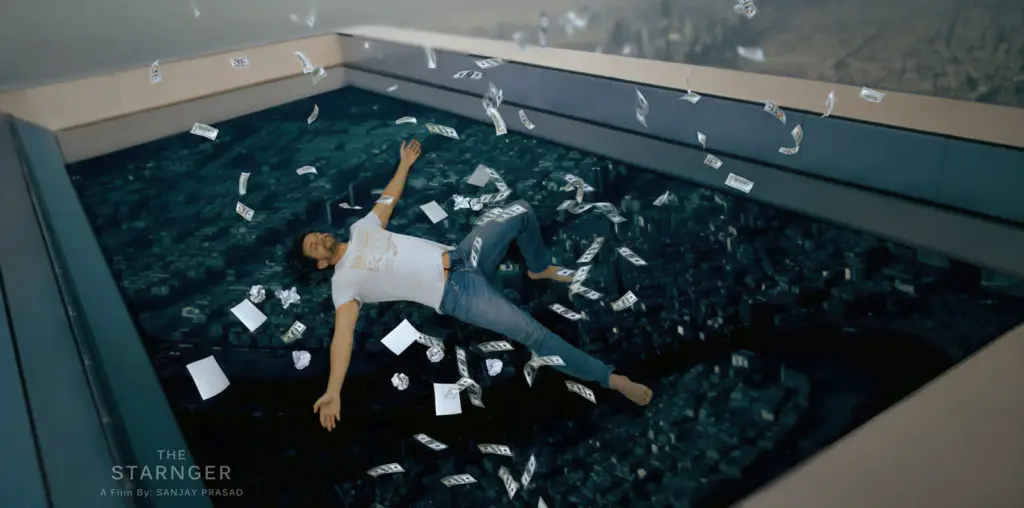
When Robert (Peter Sarsgaard) meets Jeffrey (Campbell Scott), they are acting out an ancient Hollywood scene. Robert is an unsold screenwriter, and Jeffrey is an ultra-slick, high-ranking studio executive. Jeffrey loves Robert’s newest script and wants to buy it – so he can change it.
Robert is gay, well mostly gay (he’s also a divorced father) and his screenplay involves a man dying of AIDS. The man is probably based on his now dead lover, who was also his agent. Jeffrey tells him that America hates gay people and that no one will see the movie of his script unless one thing happens: he changes his gay male lead to a heterosexual woman with AIDS. If he signs on, Jeffrey will give Robert a hefty fee for his script. After the obligatory resistance, Jeffrey agrees to a million-dollar search-and-replace.
And the seduction doesn’t stop. Robert meets Elaine (Patricia Clarkson), Jeffrey’s intelligent and sweet-natured wife. Robert and her bond instantly. But this doesn’t prevent Jeffrey, who has two children with Elaine, from offering to sleep with Robert – nor does it prevent Robert from accepting.
All seems to be going well, in a sadly sleazy kind of a way, until Elaine – perhaps longing for some kind of deeper connection with the young screenwriter — starts checking out Robert’s online gay sex chatroom and takes up a false male identity. The results are, of course, disastrous – but the disasters are not necessarily the ones you’d expect. Some of them are worse.
“The Dying Gaul” owes something to classic tales of Hollywood depravity like “Sunset Boulevard,” “In a Lonely Place,” and “The Player,” but it’s much closer to, yes, “Closer.” Not only do both films make use of the possibilities of cross-gender chatroom deceptions (a device that is not particularly movie-friendly…they’re both stage adaptations), they each are primarily concerned with the effects of immoral romantic choices. It’s just that the characters created by playwright/screenwriter Craig Lucas (“The Secret Life of Dentists,” “Prelude to a Kiss”) have easily understandable motives – the basics: lust, loneliness and selfishness, but also the need for genuine love and spirituality. The people in “Closer” are from some other planet, and not one I would bother to visit.
Another parallel with “Closer,” is that this is a movie largely based on acting. The film is anchored by Patricia Clarkson’s brilliant depiction of a woman who is deeply empathetic, but not quite saintly. Peter Saarsgard’s and Campbell Scott’s performances are both appropriately closed off, only partially sincere. The two men are more alike than different.
“The Dying Gaul” is Craig Lucas’s film directing debut, and it’s impressive. The film never feels one bit like a stage adaptation. (I had no clue that it was based on a play until the end credits.). It’s also visually surefooted. Featuring strong work from cinematographer Bobby Bukowski and production designer Vincent Jefferds, it has a quiet creepiness reminiscent of “The Player,” mixed with a more sensual use of color and some of the most swankily beautiful locations in recent memory. In particular, Jeffrey and Elaine’s spectacular, coldly tasteful hillside home overlooking the Pacific makes an appropriate setting for an emotional horror film. The house is the embodiment of the epigram from Moby Dick that opens “The Dying Gaul”: “Woe to him who seeks to please, rather than to appall.”
